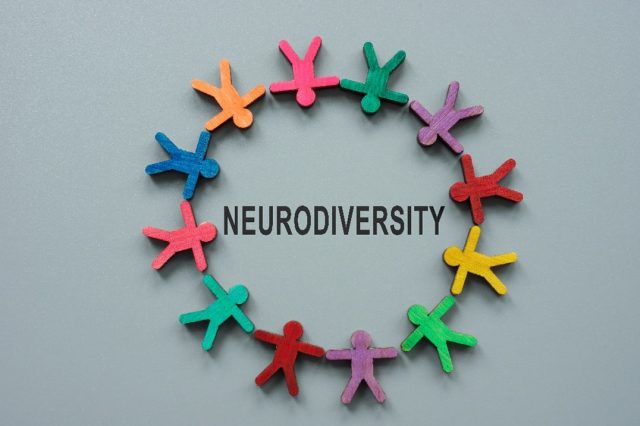In the dynamic landscape of modern workplaces, Beverli Marshall believes diversity is increasingly acknowledged as a driving force behind innovation and organizational success. Embracing neurodiversity, a concept championing the uniqueness of neurological differences emerges as a pivotal aspect of creating genuinely inclusive work environments. Rather than viewing conditions such as autism, ADHD, and dyslexia as deficits, neurodiversity celebrates the diverse cognitive styles and perspectives these conditions bring. It’s not just about meeting a societal expectation— Beverli Marshall notes it’s about recognizing the inherent value of every individual’s contribution.
It is essential to recognize that neurodiversity is a natural phenomenon that encompasses individuals with a range of neurological differences. Rather than viewing these differences as deficits, Beverli Marshall notes it is crucial to acknowledge that they can offer unique strengths. For instance, neurodivergent individuals often excel in problem-solving, analytical thinking, and creativity. This is because their brains have different ways of processing information and approaching tasks, which can lead to innovative solutions that others may not have considered.
By recognizing and leveraging these strengths, we can create a more inclusive and productive work environment. This is particularly important in today’s competitive business landscape, where innovation is a crucial driver of success. By embracing neurodiversity and creating opportunities for neurodivergent individuals to contribute their talents, we can tap into a valuable source of creativity and problem-solving ability that might otherwise go untapped. Ultimately, this can lead to increased innovation, improved productivity, and a more dynamic and successful business culture.
Embracing neurodiversity in the workplace has significant advantages for organizations. By actively fostering a culture that welcomes neurodivergent individuals, companies can tap into a more extensive pool of talent. This approach allows them to dismantle traditional barriers to entry that might have prevented neurodivergent individuals from accessing employment opportunities. As a result, Beverli Marshall explains organizations can benefit from a wealth of skills and abilities that might otherwise have gone unnoticed.
In addition to the benefits of a wider talent pool, neurodivergent individuals bring diverse perspectives to the table. These perspectives can be precious in problem-solving, where different ways of thinking can lead to innovative solutions. By embracing neurodiversity, organizations can gain a competitive edge when tackling complex challenges.
The business case for embracing neurodiversity is compelling. Organizations that prioritize diversity and inclusivity can enhance their workforce’s overall performance, foster innovation, and build a more competitive edge in their industry, according to Beverli Marshall.
Breaking down barriers to neurodiversity involves proactive efforts on multiple fronts. Implementing neurodiversity training programs becomes essential to educate the workforce about the value of diverse cognitive styles. Such programs serve to dispel myths, break stereotypes, and foster a culture of understanding and acceptance. Additionally, Beverli Marshall notes creating a workplace that accommodates diverse working styles involves implementing flexible work practices, providing alternative communication methods, and offering sensory-friendly spaces.
Clear and accessible communication is paramount. Adopting practices such as using plain language, providing written instructions, and offering alternative communication channels ensures that information is conveyed appropriately for all employees. Recognizing and implementing accommodations is crucial in supporting neurodivergent individuals. This might include providing assistive technologies, flexible work arrangements, and creating sensory-friendly spaces that contribute to a comfortable and inclusive work environment.
When we look at the stories of companies that have welcomed and embraced neurodiversity in the workplace, it becomes clear that the benefits of such a culture extend far beyond just business success. These stories demonstrate how individuals with neurodivergent conditions, such as autism, ADHD, and dyslexia, have been able to thrive and grow both professionally and personally within an inclusive work environment. This is because such a culture values diversity encourages collaboration and innovation, and provides support and accommodations for each employee’s unique needs. As a result, neurodivergent employees often experience a greater sense of purpose, fulfillment, and belonging at work, which, in turn, has a positive impact on their overall well-being and quality of life. Ultimately, these success stories serve as a testament to the importance of creating a workplace culture that celebrates and embraces all individuals’ unique strengths and talents, regardless of their cognitive differences.
In conclusion, Beverli Marshall believes embracing neurodiversity is not merely a corporate responsibility but a strategic imperative. By recognizing and celebrating the unique strengths of neurodivergent individuals, organizations can foster innovation, improve problem-solving capabilities, and create a workplace culture that values diversity in all its forms. Breaking down barriers to neurodiversity is an investment in individual well-being and a step towards building a more resilient, creative, and prosperous workplace for everyone.






